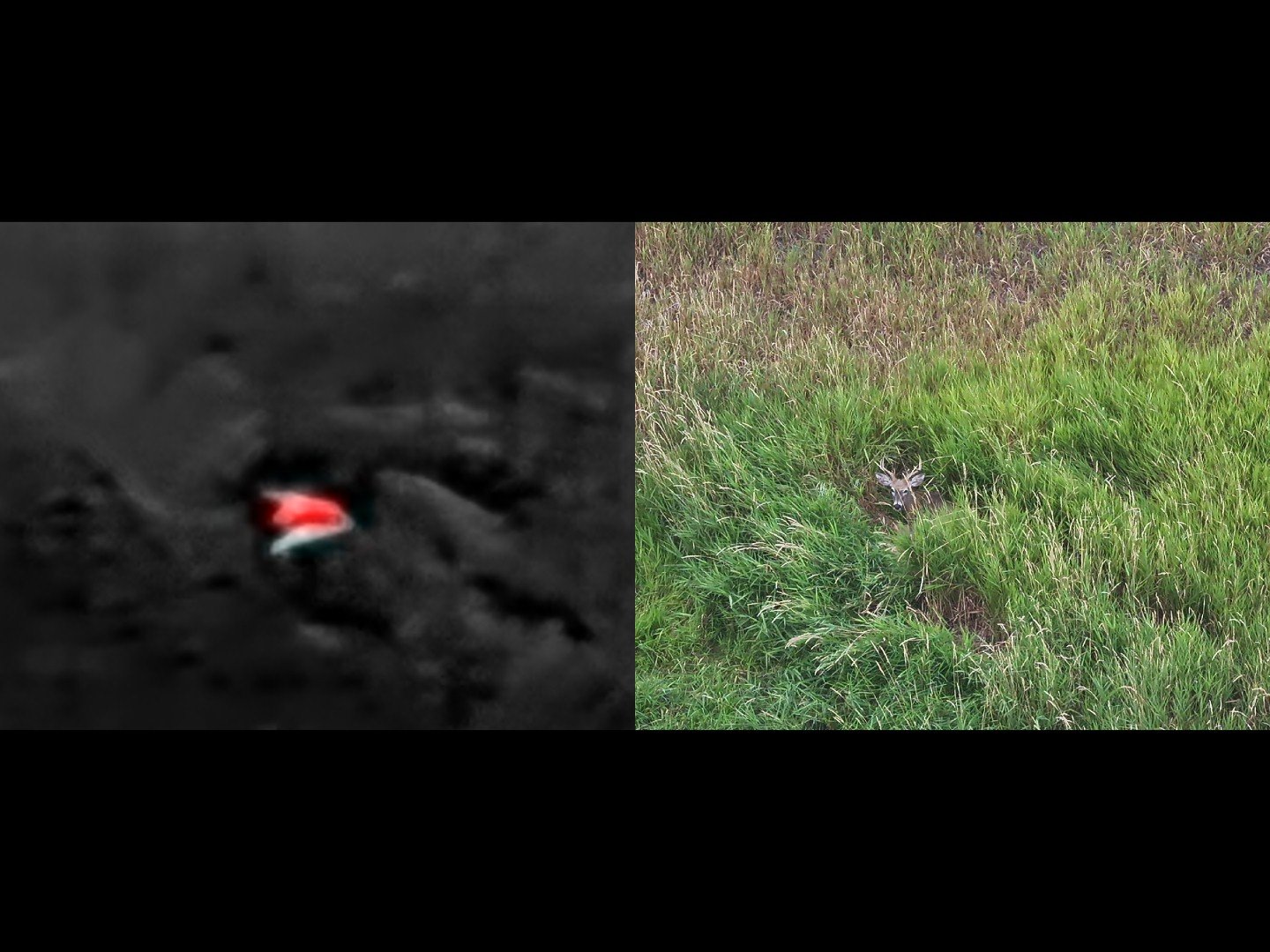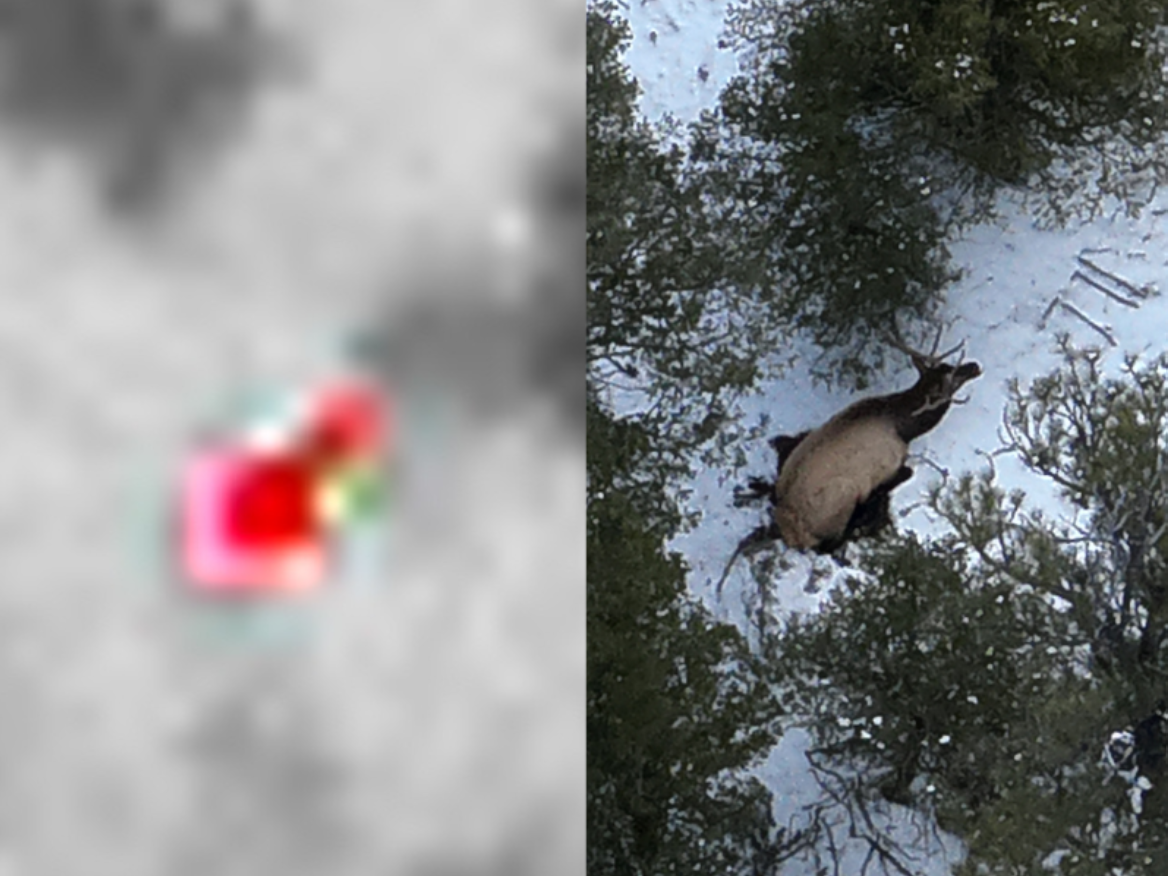Wild Game Recovery
Ethical Carcass Recovery
Respect the Hunt & Recover your Harvest
Successful hunts don’t end with the shot. We provide ethical and efficient wild game recovery using thermal drones to locate wounded or deceased animals quickly, even in low light or rugged terrain. Our service helps hunters reduce waste & overharvest, honor fair chase values, and ensure their harvest is recovered with respect.
The Debate Around Thermal Drone Recovery
Using thermal drones to locate wounded or deceased game is a powerful tool, but like any tool, it can be abused. This is a controversial topic of discussion within the hunting and conservation community. While many see it as a way to reduce waste and overharvest, others raise questions about fair chase and how new technology fits into traditional practices.
We recognize that the use of drones for game recovery is a developing issue in Montana and across the country. Our services are focused solely on recovery after the hunt, not on aiding in the pursuit or harvest of animals. We remain committed to operating within state regulations and to working with Montana Fish, Wildlife & Parks to ensure our practices align with both the law and the principles of ethical hunting.
Despite the controversy, we truly believe this is an important tool to enhance conservation outcomes, uphold ethical hunting standards, and strengthen the relationship between FWP, hunters and the public.
Explore the documents below to further understand our perspective and to see the steps we’ve taken to provide an ethical and legal service.
Understanding the Limits of Thermal Drones
While thermal drones are a powerful tool for game animals, they are not a guarantee. Success depends on factors like weather, terrain, animal movement, and how quickly a search begins. In hot daytime conditions, dense cover, or when too much time has passed, thermal imaging may be less effective. We believe in being transparent with our clients—drones can greatly improve recovery chances in the right situations, but they are just one tool among many.
Factors That Increase Success
Fast Response Time - starting searches sooner limits the distance a wounded animal can travel, increases the chance of finding a heat signature and increases the chance of finding the carcass intact
Weather - cool, cloudy weather or snow covered ground improves thermal contrast, making animals easier to see
Time of Day - if the weather isn’t cool & cloudy, then early morning and late evening searches work best for finding thermal signatures, however a visual (non-thermal search can still be effective if in open terrain
Game Size - larger species like elk, deer, antelope & bear provide stronger heat signatures that last longer after death (up to 48 hours after death)
Game Species Behavior - if still alive, deer usually travel less then elk after being wounded
Known Locations - providing a hit location and having a clear blood trail helps determine movement pattern and can narrow the search area
Terrain - open terrain like pastures, hillsides, or sparse woods make it easier to see to the ground
Access - having permission to search the area without restrictions
Competing Heat Sources - less competing heat signatures in the area such as other game animals, livestock, and animal sized rocks helps to isolate the animal being searched for (rocks that have been in the sun retain heat for a long time)
Factors That Decrease Success
Slow Response Time - starting searches later increases the distance a wounded animal can travel, decreases the strength of the heat signature and decreases the chance of finding the carcass intact
Weather - hot, humid weather decreases thermal contrast, making animals harder to see; bad weather such as rain, snow or fog prevents flight operations
Time of Day - unless the weather is cool & cloudy, then day time searches make it very hard to find specific heat signatures, however a visual (non-thermal) search can still be effective if in open terrain
Game Size - smaller species provide weaker heat signatures that don’t last as long after death
Game Species Behavior - elk can travel very far distances after being wounded unless they were gravely wounded
Known Locations - not knowing the shot location, blood trail or last track makes it difficult to establish a search area
Terrain - dense forest canopies and heavy brush make it harder to see to the ground
Access - not having permission to search nearby areas limits the search area
Competing Heat Sources - more competing heat signatures in the area such as other game animals, livestock, and animal sized rocks makes it harder to isolate the animal being searched for (rocks that have been in the sun retain heat for a long time)
How much does it cost?
Providing drone recovery requires specialized equipment, licensed & insured pilots, careful planning, travel and field time. Charging for this service ensures we can maintain high-quality gear, cover operating costs, and continue offering reliable recovery support to hunters when they need it most.
Prices And Descriptions of Services
Base Thermal Search & Locate – $350 base fee
Includes 2 hours of “in-the-air” search time
Additional Search Time – $50 per 30 minutes
If requested
Remote Access Fee – $50 (minimum) up to $ 250 (maximum)
Required if the drone can’t be flown from the operator's vehicle. The operator must remain within visual line of sight of the drone which is not always possible from the road, depending on location. The search equipment is heavy and fragile, making off road travel more difficult. Minimum charge is $50 to leave the vehicle, with a maximum of $250 and 2 miles from the vehicle. The fee depends on distance, elevation gain, terrain, ground cover, snowcover, etc. and will be assessed after arriving at location.
Travel Fee – $2 per mile
Distance from Missoula to Search Location with the first 25 miles FREE
Success Bonus – $100
Charged if visual confirmation and GPS coordinates are provided. This saves you money if we can’t locate your animal.
Recovery Assistance – $100 per hour
Assistance with carcass extraction is situation dependent and is not always available but if you need our help to get your game out, we will do our best to make ourselves available.



